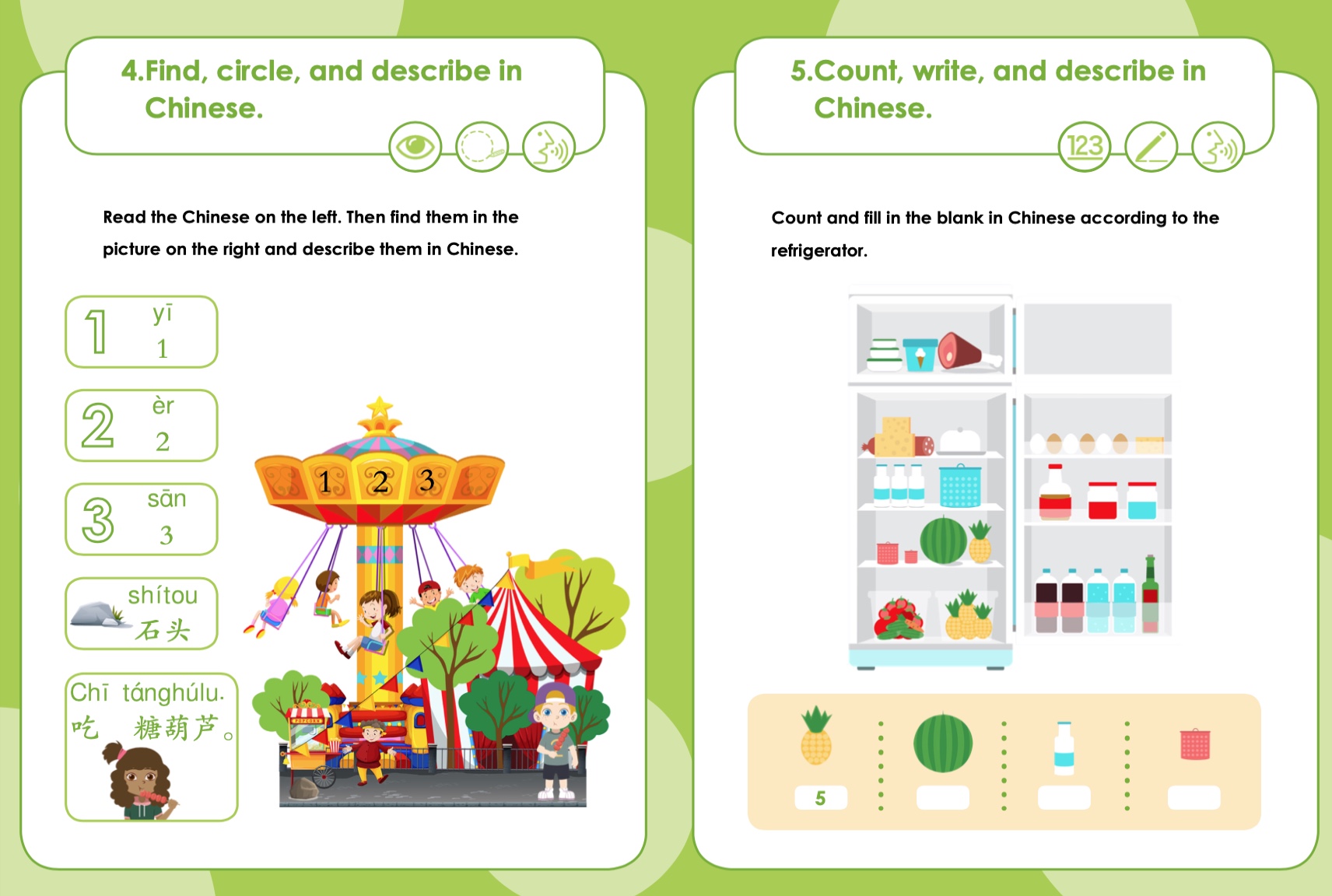Chinese Learning Secrets for Young Children
Pssssst. We want to tell you a secret. It’s big. We want to tell you the easy way to learn Chinese or any other language…

Just kidding. There is no secret. Just like any skill, learning a language takes repeated exposure and practice. Here’s the real secret, you already know how to teach a language. You taught your child their first language already through repeated exposure and practice.
Though we know we shouldn’t, as parents we often compare our child’s development to others. You’ll probably have noticed by now that even siblings learn at different speeds and in vastly different ways. Often, the way they learn a skill doesn’t even seem to be the “logical way” to learn something.
As you have probably also seen, interest in a topic or activity directly impacts how quickly the new task is learned. Just think about that dinosaur-obsessed child we all know who can recite all sorts of impressive and interesting details about a seemingly endless number of dinosaurs. That “obsession” with a topic helps them get repeated exposure to the information, which is the best way to make sure information is learned and retained.
At Lingo Bus, we know that time, interest, and personality all impact a child’s learning. Our curriculum includes preview and review material that is fun and dynamic and will allow your child to have that much-needed repetition, the “secret” to learning a language.
The Importance of Play-Based Learning
If you are asked to solve a simple addition problem, such as 17+5=___, you’ll probably go about solving the problem differently from someone else. Each person will create a different mental picture because of how their brain processes the task.
When children begin to acquire language, their brains will also go through different steps, and they will mentally group the new knowledge in a way that makes sense within their brains. For children, language studies demonstrate that immersive language practice allows children to more easily “group” the knowledge, allowing children to rapidly transition between languages. Using colorful pictures, entertaining videos, and play-based learning will also be effective in building those language connections in your child’s brain and building a strong language foundation.
We recommend using play-based learning as much as possible to reinforce your child’s language acquisition. That’s why we have workbooks and games provided in our study resources; they’ll give you the necessary tools for practicing new language vocabulary and patterns in a fun way. You can also use techniques that make your child feel playful and relaxed, such as speaking in different voices, singing instead of talking, and guessing games. These are a great way to keep your child’s brain open to new learning.

Openness to learning is also heavily based on a child’s interest in the activity. In the classroom, our teachers will try to quickly build rapport with students, gauge their interests and ability, and then customize the lesson to keep students interested and actively learning. Between classes, try to use the review activities that your child most prefers and spend a smaller percentage of time with activities that your child dislikes.

Our learning cycle has five stages- Preview and practice, Classroom Learning, Review, Evaluation, and Extension. Many of these stages (Preview, Review, Extension) happen outside of the classroom, and for the most effective learning results, your child should complete all of them. Will your child’s interest remain the same all day? No, as a parent, you are aware that your child may be very focused and interested in new learning during one part of the day, but absolutely opposed at another time. Finding the right time to begin the new learning is essential.
As we said before, the most essential component of effective language acquisition is repetition. You probably don’t recall the process of learning your first language, but you may remember, how many times you said the word “ball” to your child before he/she repeated it (or said it suddenly in the middle of a quiet dinner party). Any exposure to the target vocabulary will help plant the seeds for your child’s language growth- sensory play, listening to songs in Mandarin, playing a simple board game with the new vocabulary… these are all useful and necessary for adding the extra exposure.
How Do Lingo Bus Lessons Help?
For native Chinese-speaking parents and for parents who have no Chinese-speaking background, you will need an organized system for teaching your child a language in steps that are age-appropriate, engaging, and effective. Our goal is to provide you and your child the tools and system to introduce, reinforce, and perfect the second (or third language) knowledge.
Our curriculum team researches language acquisition theory, as well as early childhood development. The lessons and learning cycle are built around this knowledge to give your child an engaging learning experience and the review materials to build a strong language foundation. All our learning materials are self-developed by Chinese education experts. Our language goals are aligned with the American Council on the Teaching of Foreign Languages (ACTFL) and the Youth Chinese Test (YCT) language standards. In our lessons, we put a strong focus on cultural awareness through the activities and themes we use in our curriculum.
Class Highlights
• 25-minute class that fits in children’s maximum attention time span to ensure a positive study effect
• 1-on-1 live teaching model enabling children to learn Chinese anytime, anywhere
• 100% immersive teaching method that creates real language scenarios
• Based on TPR and Scaffolding Instruction theories, improves students’ study motivation
• Multiple games and multi-media courseware that create an enjoyable and interactive learning environment
• Interdisciplinary subjects to enrich children’s knowledge reservoir and improve their language ability
Lingo Bus teachers are also selected with rigorous criteria. We accept fewer than 4% of applicants and train and monitor new teachers to ensure that they are teaching to our high standards. This allows you to schedule knowing that your child will receive quality instruction and a teacher who will customize the lesson to their personality and needs.
Our Teachers
• Less than 4% of applicants are admitted as Lingo Bus teachers
• Bachelor’s degree or above in Teaching Mandarin Chinese as a Foreign Language or Linguistics • At least 1 year of teaching experience with children
• Passed the National Putonghua Testing second grade examination
Further Reading:
The Benefits of Raising Bilingual Children
How Long Does It Take to Learn Mandarin Chinese
Is Language Input That Important to Advance Chinese Language Studies?
Is Language Input That Important to Advance Chinese Language Studies
How Long Can Your Child Stay Focused and How Can You Help?

